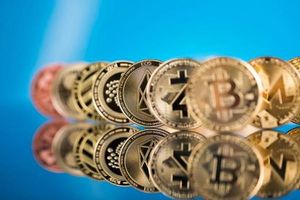Ben & Jerry's, the beloved ice cream maker known for its social activism, is embroiled in legal drama with its parent company, Unilever, over allegations of censorship related to the Gaza conflict. This lawsuit, filed on November 13, 2024, in federal court, claims Unilever has tried to suppress the ice cream brand's efforts to speak out on behalf of Palestinians impacted by the war. The complaint outlines serious allegations against the multinational corporation, including intimidation tactics aimed at Ben & Jerry's independent board and threats to dismantle it if the brand pursued its advocacy for peace and refugee rights.
According to the lawsuit, Unilever has prevented Ben & Jerry's from publicly voicing concerns about the Gaza situation, silencing calls for ceasefires and expressions of support for U.S. college students protesting the conflict. The ice cream company asserts they have made four separate attempts to speak out against these issues only to face direct opposition from Unilever.
Ben & Jerry's and Unilever's relationship has been contentious since the ice cream maker's decision to stop selling products in Israeli settlements. This move was seen as inconsistent with the company’s social mission, which includes supporting liberal causes. Since Unilever’s acquisition of the brand back in 2000, they have distanced themselves from Ben & Jerry's activist stance, particularly after the company’s decision to halt sales in regions tied to the Israeli-Palestinian conflict.
The lawsuit explicitly states, "Unilever has repeatedly failed to recognize and respect the Independent Board's primary responsibility over Ben & Jerry's Social Mission and Brand Integrity," emphasizing the board's right to operate independently when it concerns advocacy issues. Ben & Jerry’s contends this is not merely about corporate governance; it's about safeguarding the integrity of their social mission founded upon values of justice, peace, and human rights.
Unilever, who acquired Ben & Jerry's primarily for its brand equity and social image, asserts it continues to support the brand's activism. Nevertheless, their response to the lawsuit rejected the claims as fabricated and stated, "We will defend our case very strongly." This statement reflects Unilever's intent to protect its corporate reputation amid rising scrutiny surrounding its handling of the ice cream maker's diminishing independence.
Part of the legal conflict stems from how Unilever has managed its ice cream business over the years, particularly following negotiations to allow its Israeli licensee to sell Ben & Jerry's products with Hebrew and Arabic labels. This resulted in Ben & Jerry's unsuccessful attempt to block the sale legally, which introduced additional resentment between the two entities. Following these events, the groups reached a settlement agreement. Ben & Jerry's maintains the contract empowered its independent board to uphold the brand's social mission and integrity.
Interestingly, the lawsuit indicates Unilever not only silenced Ben & Jerry's advocacy efforts but also rejected the brand's choices for social donations. Specifically, Ben & Jerry's sought to support groups like Jewish Voice for Peace, which Unilever deemed too controversial. This indicates more than just corporate control; it speaks to the cultural and political clashes inherent within the fields of social justice and corporate responsibility.
Benjamin Cohen and Jerry Greenfield, the company's founders, built Ben & Jerry's on the principles of sustainability and social justice back when they opened their first shop in 1978. Their commitment to these values persists, yet the struggle with Unilever raises questions about the challenges social enterprises face when operating under larger corporate structures.
Even as Ben & Jerry's takes legal action to wrestle back control of its narrative, Unilever is under tremendous pressure, especially considering their recent announcement to cut 7,500 jobs within the company to improve cost efficiency. This strategic reshuffle, which includes spinning off its ice cream business, might signal broader economic issues and could even influence how these companies navigate social activism moving forward. Ben & Jerry's lawsuit could set important precedents about what happens when global businesses clash with their brands' social missions.
Observers of the legal proceeding, including corporate governance experts, note the increasing public scrutiny faced by large corporations, especially those involved with social issues. The outcome of this case could reshape the relationship between mission-driven organizations and their parent corporations, potentially putting social responsibility at the forefront of corporate governance discussions.
Through this latest legal battle, the future of Ben & Jerry's remains intertwined with broader socio-political issues, with the outcome of the lawsuit likely to reverberate throughout the corporate world. Unilever's fate might very well depend on how they navigate the storm caused by this lawsuit, as the public rallies around strong advocacy for human rights and social responsibility.



